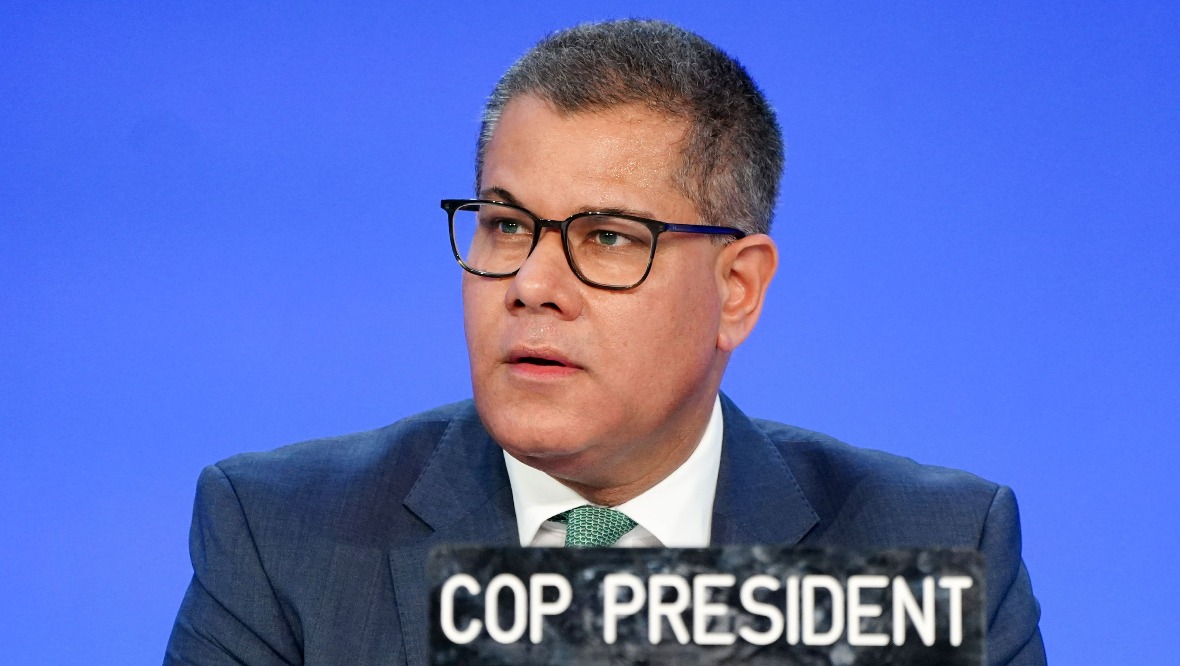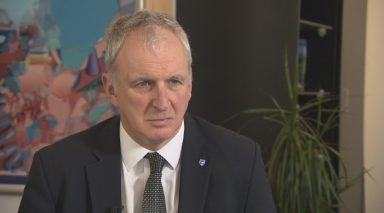China and India will have to “justify” their decision to manoeuvre for the Glasgow Pact’s coal pledges to be watered down, according to the COP26 President.
Critics said Glasgow’s aim of keeping global temperatures from rising to 1.5C above pre-industrial levels were in “intensive care” after the row over the wording.
But Alok Sharma insisted that the two-week summit, which closed on Saturday after requiring more than 24 hours of extra time, had “kept 1.5C within reach”.
The former business secretary admitted that the final few hours had proved “emotional” after investing time into understanding the global impact of climate change over the past two years.
Sharma was close to tears on a couple of occasions during an hours-long final plenary, including as he apologised to delegates for the way a change to the pact’s wording on fossil fuels was brought about at the eleventh hour.
Following a push led by China, and backed up by India, it was decided to change the language from accelerating the “phase out” of unabated coal, to “phase down”, a move that prompted angry responses from European and vulnerable countries.
Summit president Sharma said it was a “first” to have coal commitments written into a UN climate text but conceded that he had wanted the pledge to go further.
He told the BBC’s Andrew Marr Show that China and India would have to “explain themselves” after representatives from countries most at risk of rising seas and changing weather patterns expressed “disappointment” on the floor of the summit at the move.
Speaking to Sky News’ Trevor Phillips On Sunday programme, Mr Sharma added: “Yes, of course I would have liked to ensure we maintain the ‘phase out’ rather than changing the wording to ‘phase down’, but on the way to phasing out, you’ve got to phase down.
“But, ultimately, of course, what we need to ensure is that we continue to work on this deal, on these commitments, and on the issue of coal, China and India are going to have to justify to some of the most climate vulnerable countries what happened.”
Asked whether his emotional reaction to the change in language on coal was an admission of failure, Mr Sharma told the BBC: “I wouldn’t describe what we did yesterday as a failure – it is a historic achievement.”
He hailed agreements for countries to revisit and strengthen their 2030 national climate action targets by the end of 2022 and for annual “high level” ministerial meetings on tackling emissions, as he urged for countries to be held “to account for the commitments that were made” in Glasgow.
But the final accord has come in for criticism, with shadow business and energy secretary Ed Miliband warning that “keeping 1.5 degrees alive is frankly in intensive care”, with a “chasm” between what was agreed in Scotland and what still needs to be done to slash emissions.
The former Labour leader told Trevor Phillips: “The task of the world is to halve global emissions over the coming decade, that’s by 2030, that’s what the scientists tell us is necessary to keep 1.5 degrees alive and the truth about Glasgow, despite some progress, is that the world is only probably about 20% or 25% of the way to that goal.”
The UN’s climate change chief Patricia Espinosa, however, backed Mr Sharma’s assessment of the conference, telling Andrew Marr the goal of limiting temperature rises to 1.5C is “definitely alive” after the summit.
The conference also secured agreement on finalising key parts of the “Paris rulebook”, on areas such as establishing carbon markets and transparency over the action countries are taking, which have been outstanding since the climate treaty was agreed in 2015.
The final decisions come after a fortnight of negotiations which began with 120 world leaders attending the summit.
A series of deals by countries and businesses on cutting methane emissions, curbing deforestation, switching to electric cars, driving investment in clean technology and phasing out coal power were announced alongside the formal negotiations, as part of efforts to drive “real-world” climate action.
Follow STV News on WhatsApp
Scan the QR code on your mobile device for all the latest news from around the country


 PA Ready
PA Ready

























